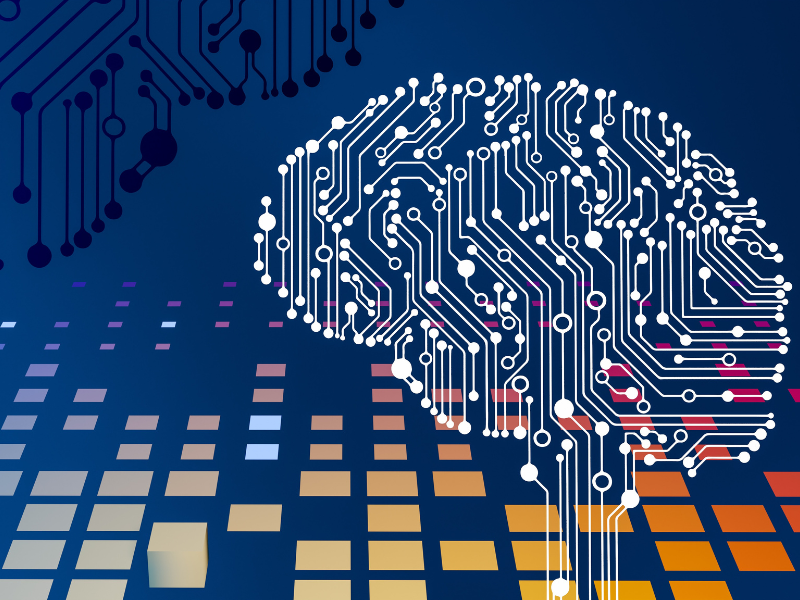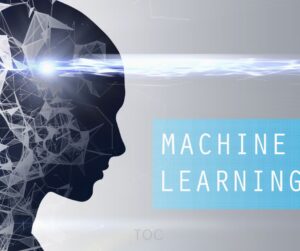Part 2 of an ongoing series
David Letsa, MD
Cancer continues to be one of the leading causes of death worldwide. Although there is progress in the diagnosis, prognosis, and treatment of cancer patients, there is still an ongoing challenge: early detection. It is crucial since early detection and diagnosis at an early stage improve patient outcomes and increase the chance of providing effective treatment in many tumor groups, enabling timely interventions.
Artificial intelligence (AI) technology advancements are transforming cancer detection and diagnosis. There is growing optimism about AI’s potential to predict cancer at an early stage. Are AI tools for cancer imaging ready for the real world? AI tools for early detection have shown significant promise and are advancing rapidly, but their readiness for widespread real-world application is still evolving. However, since the first AI-enabled medical device received FDA approval in 1995 for cervical slide interpretation, 692 FDA approvals have been provided for AI-powered devices as of December 2023.1 The following examples show how AI is making a significant impact on the fight against cancer and may be the key to solving the challenge of early detection.
The Future of Early Detection
Analyzing genomic data using AI is another promising area in cancer prediction. Utilizing AI to analyze genomic data shows promise in cancer prediction by identifying genetic markers and patterns linked to specific cancers. The human genome holds valuable insights into cancer predisposition, and AI algorithms can effectively mine this information. That enables the prediction of cancer likelihood based on a patient’s genetic data, facilitating early interventions and tailored treatment strategies.2
Another area where AI technology will rapidly change is medical imaging. There have already been several advancements in this sector. For instance, in a study that compared a deep learning algorithm to a radiologist from the National Lung Screening Trial, the algorithm performed better than the radiologist in detecting lung cancer on chest X-rays.3
AI-based tools have been developed to aid in screening tests for various types of cancer, and ongoing research in this area is continually advancing. Here are some examples:
Glioma
The Cryosection Histopathology Assessment and Review Machine (CHARM) systematically analyzed cryosection slides using samples from 1,524 glioma patients from 3 different patient populations. It successfully detected malignant cells, classified 3 significant types of molecularly defined gliomas and identified the most prevalent subtypes. CHARM, via cryosection images, further predicted clinically significant genetic alterations in low-grade glioma, including ATRX, TP53, and CIC mutations.4
Prostate cancer
AI has the potential to significantly enhance the early detection of prostate cancer by improving the accuracy, efficiency, and consistency of histopathological analysis. Its applications in automated grading, image analysis, clinical outcome prediction, real-time assistance, and second opinion systems offer valuable tools for improving patient care and outcomes in prostate cancer diagnosis.5
Pancreatic cancer
According to the available data, approximately 44% of individuals diagnosed with pancreatic cancer in the early stages survive for 5 years following diagnosis. Unfortunately, only 12% of cases are identified at such an early stage. An AI tool has successfully identified individuals at high risk for pancreatic cancer up to 3 years before diagnosis. The AI tool can predict disease development based on disease codes and timing by analyzing a nationwide Danish registry data live stream.
Current screening methods for pancreatic cancer are limited to those with a family history or genetic predisposition. The AI tool offers a population-wide screening approach, potentially expediting diagnosis and improving outcomes. Clinicians can target testing for individuals at the highest risk while reducing unnecessary procedures for others. Early detection of pancreatic cancer is crucial for better survival rates. This AI-based approach shows promise in transforming screening and diagnosis.6
Colon cancer
A new AI tool accurately predicts overall and disease-free survival after colorectal cancer diagnosis by analyzing visual markers on pathology images. The model was trained using data from almost 2,000 patients diagnosed with colorectal cancer, drawn from diverse national patient cohorts with a combined total of over 450,000 participants. These cohorts include the Health Professionals Follow-up Study, the Nurses’ Health Study, the Cancer Genome Atlas Program, and the NIH’s PLCO (Prostate, Lung, Colorectal, and Ovarian) Cancer Screening Trial. It accurately predicted patients’ overall survival, cancer-free years, and individual responses to different therapies, outperforming human pathologists and current AI models.7
Challenges and limitations
While AI holds significant promise in cancer prediction, some challenges and limitations must be addressed. One of the primary concerns is the availability and quality of data. AI algorithms require large datasets for training, and obtaining comprehensive and diverse cancer-related data can be challenging. Additionally, there is a need to ensure the ethical use of patient data and maintain privacy and security.
Another challenge is the potential for algorithm bias. AI algorithms are only as reliable as the data they are trained on. If the training data is biased, the algorithm may produce inaccurate or unfair predictions. Addressing these biases and continually preparing and updating the algorithms are crucial to ensure accuracy and fairness.
Future directions
The role of AI in predicting cancer is expected to expand further as technology advances. Researchers are exploring the integration of AI algorithms with wearable devices and mobile applications to monitor health parameters and detect early signs of the disease. Moreover, combining AI with cutting-edge technologies like blockchain can improve data security and privacy concerns, facilitating better collaboration and information sharing among healthcare providers and researchers.
AI can revolutionize the detection and diagnosis of cancer by analyzing complex datasets and identifying patterns that may indicate the early stages of cancer development. By assisting healthcare professionals in interpreting medical images, genomic data, and other relevant factors, AI can contribute to more accurate and timely diagnoses. However, addressing the challenges and limitations is essential to ensure AI’s ethical and responsible use in healthcare. Continued research, collaboration, and innovation in AI technology will enable significant strides in the early detection and treatment of cancer.
David Letsa, MD, is a medical doctor and medical writer. Dr. Letsa completed his medical degree at Semmelweis University and held certificates in global health innovation and entrepreneurship from the Barcelona Institute for Global Health (ISGlobal) and Health-based Artificial Intelligence Online Training from GE Healthcare. Find David on LinkedIn.
References
- Artificial intelligence and machine learning (AI/ML)-enabled medical devices. FDA.gov. Updated October 19, 2023. Accessed December 19, 2023. https://www.fda.gov/medical-devices/software-medical-device-samd/artificial-intelligence-and-machine-learning-aiml-enabled-medical-devices
- Dias, R., & Torkamani, A. (2019). Artificial intelligence in clinical and genomic diagnostics. Genome medicine, 11(1), 70.
- Yoo, H., Kim, K. H., Singh, R., Digumarthy, S. R., & Kalra, M. K. (2020). Validation of a Deep Learning Algorithm for the Detection of Malignant Pulmonary Nodules in Chest Radiographs. JAMA network open, 3(9), e2017135.
- Nasrallah, M. P., Zhao, J., Tsai, C. C., Meredith, D., Marostica, E., Ligon, K. L., Golden, J. A., & Yu, K. H. (2023). Machine learning for cryosection pathology predicts the 2021 WHO classification of glioma. Med (New York, N.Y.), 4(8), 526–540.e4.
- Busby, D., Grauer, R., Pandav, K., Khosla, A., Jain, P., Menon, M., Haines, G. K., 3rd, Cordon-Cardo, C., Gorin, M. A., & Tewari, A. K. (2023). Applications of artificial intelligence in prostate cancer histopathology. Urologic oncology, S1078-1439(22)00487-2. Advance online publication.
- Bojesen, A. B., Mortensen, F. V., & Kirkegård, J. (2023). Real-Time Identification of Pancreatic Cancer Cases Using Artificial Intelligence Developed on Danish Nationwide Registry Data. JCO clinical cancer informatics, 7, e2300084.
- Tsai, P. C., Lee, T. H., Kuo, K. C., Su, F. Y., Lee, T. M., Marostica, E., Ugai, T., Zhao, M., Lau, M. C., Väyrynen, J. P., Giannakis, M., Takashima, Y., Kahaki, S. M., Wu, K., Song, M., Meyerhardt, J. A., Chan, A. T., Chiang, J. H., Nowak, J., Ogino, S., … Yu, K. H. (2023). Histopathology images predict multi-omics aberrations and prognoses in colorectal cancer patients. Nature communications, 14(1), 2102.







